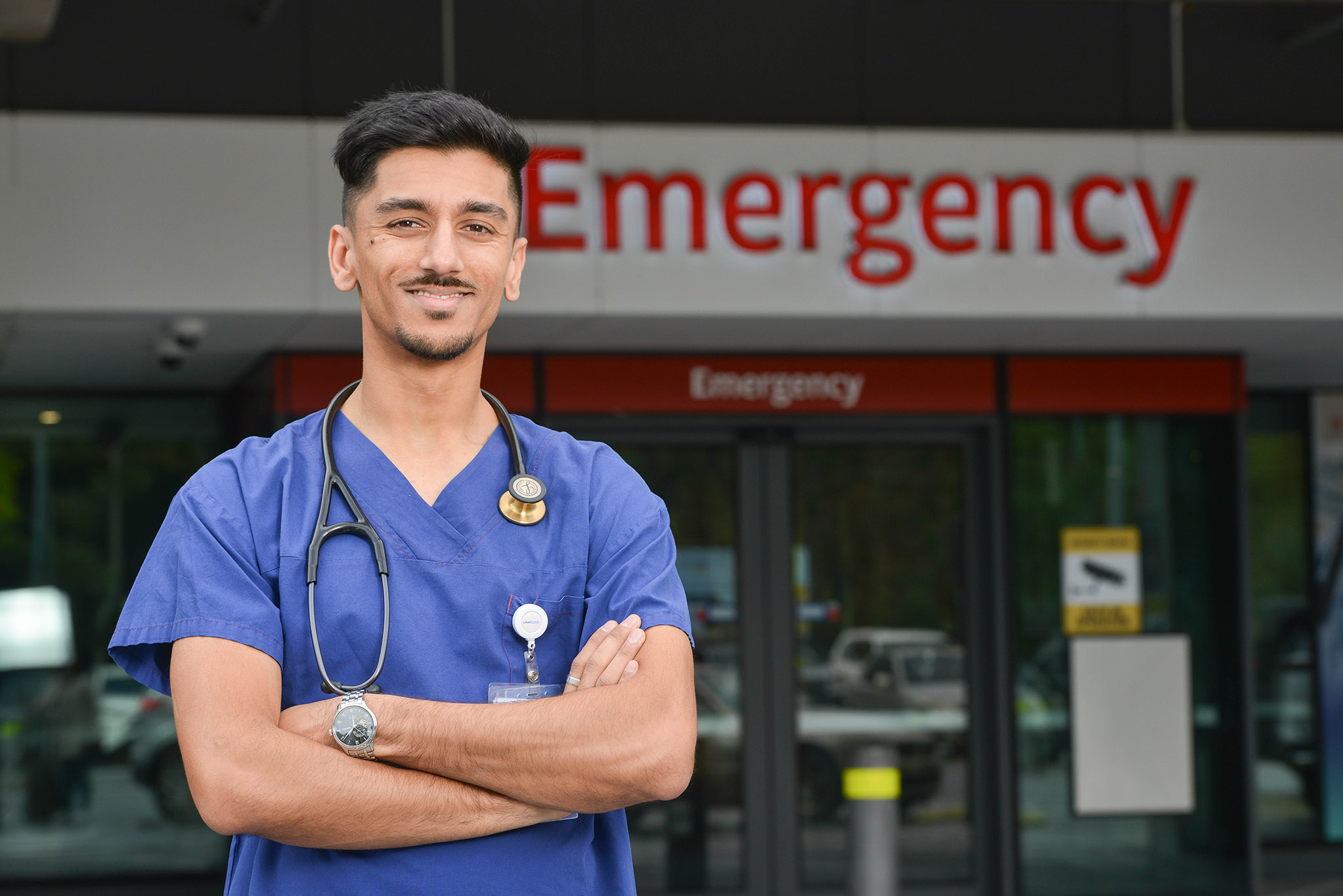
Arriving in Australia from Pakistan as a refugee in 2013, Dr Ata Ul Hadi (MD ’22) had an unwavering desire to become a medical doctor – and he thanks Flinders University for providing the opportunity for his dream to become a reality.
Having graduated in 2022, Hadi, as he prefers to be called, is now working as a Medical Intern at the Royal Adelaide Hospital. However, it was far from an easy journey for Hadi to earn his qualification.
He fled Pakistan with his father to escape religious persecution of Ahmadi Muslims, torn by having to leave behind his mother and youngest sister, as they tried to establish a new life for the family in Australia.
“I was 20 and had never spoken a full sentence in English,” says Hadi. “I did not know what the future in Australia would be like, but I had a dream to become a doctor. Our family supports the charitable organisation Humanity First International that relies predominantly on volunteers to run its various services, so I am determined to do this to help humanity.”
Having initially settled in Melbourne, Hadi worked odd jobs to support his full-time studies that began with a Diploma of Health Sciences at Deakin College, before transferring to study a Bachelor of Life Sciences at Monash University, then embarking on Honours studies.
Although Hadi went to an elite school in Pakistan, he found great difficulty mastering English for tertiary studies. He sat the GAMSAT medical school admissions exam six times without success over four years.
“I was asking questions of whether this whole exercise is futile and if perhaps I was dreaming bigger than what I am capable of,” he recalls, “For two consecutive years of applying after completing my degrees, I didn’t get any offers from medical schools.
“Finally, I received the invitation to study at Flinders University. I wish I could paint the moment when I read the email of acceptance. My mother, who joined us in Australia in 2015, and my father were all in tears and overcome with emotion and gratefulness to God.”
“I am so grateful that Flinders considers people from disadvantaged backgrounds and provides more equitable opportunities in medicine,” he says.
The reality of working as a doctor is more than meeting his expectations of his dreams. “There’s a lot more paperwork than I expected,” he offers with a chuckle, “and it’s interesting to learn how real patients present so differently to the textbook definitions, but I am enjoying a fantastic learning curve as an intern.”
He is now confident of pursuing his dream of volunteering as a medico working overseas, and hopes to spend time in South America or Africa after completing his internship.

